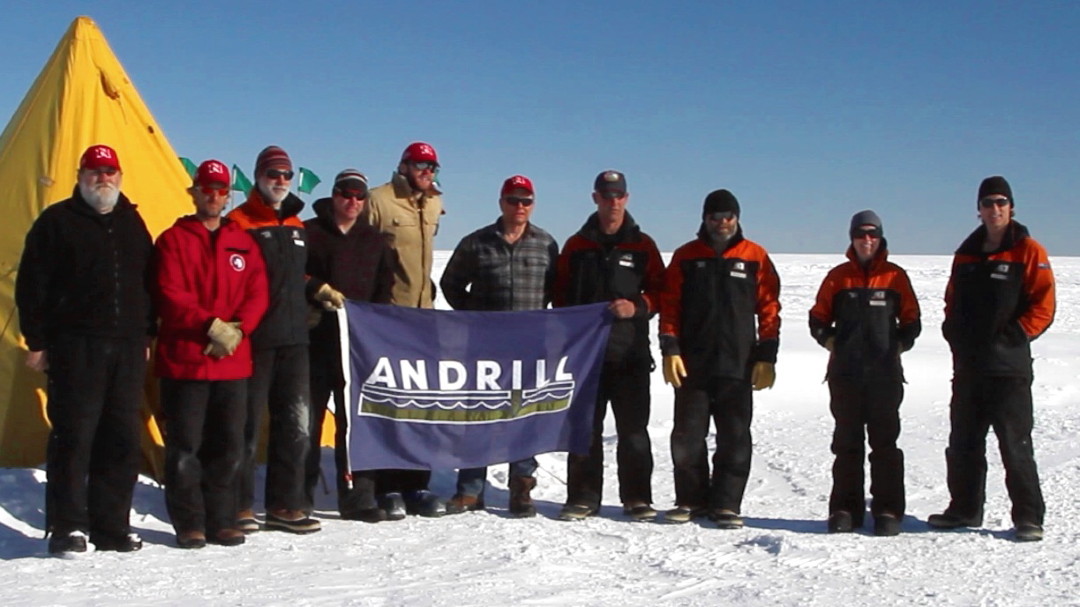
To keep onlookers updated from continents away, ANDRILL executive director Frank Rack is posting periodic updates from the project base at the Coulman High Survey Project in Antarctica. UNL and their international scientist colleagues started work about Nov. 12 and will continue through February. Rack's updates are at http://andrill.org/science/ch/news.
The daily reports include stunning photos from Ross Island where the troupe departed from McMurdo Station on Nov. 2 with their equipment, heading to the Coulman High region near the seaward edge of the Ross Ice Shelf. This year's survey is in preparation for its third drilling project for the 2013-14 season that could extend the climate record back several million more years.
The joint United States-New Zealand expedition is operating from a remote camp on the Ross Ice Shelf from late October through early February studying the ice and its movements, the sea beneath the ice and its movements, and the rocks beneath the seafloor.
The Coulman High Survey Project is funded by $2.68 million grant from the U.S. National Science Foundation through the American Recovery and Reinvestment Act, with additional support coming from the New Zealand Foundation for Research, Science and Technology. Rack directs the ANDRILL Science Management Office at UNL for the U.S., and Richard Levy, a paleoclimate research scientist for GNS-Science in New Zealand, leads that country's contingent. Levy is the former staff scientist for the ANDRILL Science Management Office.
ANDRILL's previous drilling projects, the McMurdo Ice Shelf Project in 2006 and the Southern McMurdo Sound Project in 2007, recovered the two deepest rock cores in Antarctica history (1,285 meters and 1,138 meters) with a remarkably complete record of the continent's climate history over the last 20 million years.
ANDRILL is a multinational collaboration involving more than 150 scientists from Germany, Italy, New Zealand and the United States. Its purpose is to recover sediment core samples from the McMurdo Sound and Ross Sea region of Antarctica to develop a detailed history of the Antarctic climate and the expansion and contraction of the Ross Sea area's ice sheets and ice shelves over the past 20 million years and more. Funding Support for ANDRILL comes from the U.S. National Science Foundation; New Zealand Foundation of Research, Science, and Technology; Royal Society of New Zealand Marsden Fund; Antarctica New Zealand; the Italian National Program for Research in Antarctica-PNRA; The German Science Foundation and the Alfred Wegener Institute for Polar and Marine Research Science. For more information, visit http://andrill.org.
Operations and logistics for the first phase of the ANDRILL Coulman High Project are provided by Raytheon Polar Services Corp. for the U.S. Antarctic Program, with additional support from Antarctica New Zealand.
More details at: http://andrill.org